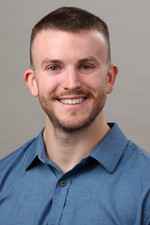Postdoctoral Fellowship in Clinical Neuropsychology
Northwestern University Feinberg School of Medicine offers a two-year postdoctoral fellowship training program in clinical neuropsychology. In accordance with Houston Conference guidelines (Archives of Clinical Neuropsychology, 1998, 13, 160-166), fellows receive intensive residency training in the science and practice of clinical neuropsychology, including opportunities for assessment, research, treatment and teaching. Fellows are expected to be eligible for ABPP board certification in clinical neuropsychology by the completion of their postdoctoral training.
Clinical Training Tracks
Applicants are asked to indicate their interest in one or both of the clinical training tracks described below. Training tracks are defined by a major rotation which forms the primary focus of the fellow’s postdoctoral training experience. To ensure the breadth of clinical training experience, fellows also participate in two secondary rotations throughout the course of their training. The secondary rotations include:
1) Conducting comprehensive outpatient neuropsychological evaluations for a wide variety of referral questions and conditions including neurologic, neurodegenerative, transplant, neoplastic, cerebrovascular, psychiatric and neurodevelopmental syndromes
2) Cross-training between the Medical/CL and Neurosurgical Neuropsychology tracks
Provided sufficient time and resources, other available training experiences may include:
- Seeing geriatric cases as part of the Neurobehavior and Memory Clinic at the Mesulam Center for Cognitive Neurology and Alzheimer’s Disease
- Forensic Neuropsychology experience as part of the Division of Psychiatry and the Law
Medical/Consultation-Liaison Neuropsychology Track
The major rotation for this track is housed within the consultation-liaison neuropsychology service at Northwestern Memorial Hospital. As part of this rotation, the fellow receives extensive training in neuropsychological sequelae of acute medical illness and clinical experience in the bedside assessment and treatment of inpatients admitted for a variety of neurologic, neoplastic, cardiovascular, toxic/metabolic, psychiatric and developmental disorders, traumatic brain injuries and systemic conditions with mental status changes. As part of a multidisciplinary care team, the fellow acts as a consultant-liaison between the patient, their family, the primary care team, other consultants and allied health professionals. Caseload is variable, ranging from two to eight patients per week. Supervision of graduate-level practicum externs is also a potential experience within this track.
Neurosurgical Neuropsychology Track
The major rotation for this track is shared between the Departments of Psychiatry and Behavioral Sciences and Neurological Surgery. The clinical population is patients undergoing neurosurgical intervention primarily for brain tumors, and more rarely for epilepsy or cerebrovascular conditions. The fellow conducts pre- and post-surgical neuropsychological assessments and participates in intraoperative cortical mapping during awake craniotomies. Typical caseload is two to four outpatients per week plus four hours in the operating room. Neuropsychological evaluations are typically conducted in the outpatient clinic, though occasionally are seen inpatient.
Academic Activities
Northwestern Medicine and the Feinberg School of Medicine offer a rich spectrum of educational and academic activities, including grand rounds, journal club, case conferences, seminar series in behavioral and clinical neuroscience, monthly seminars highlighting ongoing research, professional development series and more.
Fellows have opportunities for classroom teaching within the clinical psychology PhD program and the medical school, and for clinical supervision of graduate-level clinical psychology externs and psychiatry residents. Fellows are expected to actively participate in supervised research with one or more of the program faculty members (see below for a description of faculty research interests).
Learn more about our educational programs on the Department of Psychiatry and Behavioral Sciences Education page.
Requirements & Eligibility
Qualified applicants will have successfully completed a PhD in clinical psychology, including a one-year APA/CPA-approved internship with concentration in neuropsychology. Preference will be given to applicants with a strong theoretical foundation in neuropsychological assessment and functional neuroanatomy, and research experience including publications and conference presentations.
How to Apply
Email your CV and letter of interest to our Associate Director of Fellowship Training, Kristina Johnson, PhD by December 1st 2024. Three letters of recommendation may also be requested later so please have your writers prepared if necessary.
We are an independent fellowship training site and do not participate in the APPCN match process. Please address all inquiries to Kristina Johnson, PhD at kristina.johnson@nm.org. We are not accepting applications for the current fellowship cycle. Our next recruitment year will be for the 2027-2029 fellowship cohort.
Neuropsychology Fellowship Faculty
- Michael Brook, PhD, ABPP
- Kristina Johnson, PhD
- Melissa-Ann Mackie, PhD
- James Reilly, PhD
- Erica Sieg, PsyD, ABPP
- Matthew Tate, MD, PhD (neurosurgery track)
- Sandra Weintraub, PhD, ABPP
- Tatiana Rogers, PhD
Current Fellows 2025-2027
JC Finley, PhD

John-Christopher (JC) Finley received his bachelor's degree in psychology from Bloomsburg University of Pennsylvania. He then completed his master’s degree in clinical psychology at Towson University and worked in the Department of Psychiatry and Behavioral Sciences at Johns Hopkins Hospital before obtaining his PhD in clinical neuropsychology from Northwestern University Feinberg School of Medicine. He subsequently completed his neuropsychology internship at Emory University School of Medicine. His research focuses on using modern measurement methods and digital technologies to improve the accuracy and validity of neuropsychological assessment in adults with cognitive impairment. In his free time, he enjoys painting, outdoor sports, and relaxing with family and friends.
Andrew Rauch, PhD

Andrew Rauch earned his bachelor’s degree in psychology and management science from the University of California, San Diego, and completed his doctoral training in clinical psychology at Loyola University Chicago, specializing in neuropsychology. His doctoral research included examining patterns of affectivity associated with emerging app-based interventions, as well as contributing to cross-validation studies of embedded performance validity tests in adults with ADHD and mixed neuropsychiatric samples. His dissertation investigated the distinct impacts of anxiety and depression on working memory deficits in adults with ADHD. He completed his internship at the VA San Diego/UC San Diego Health System, where he trained in both neuropsychology and integrated primary care. His research and clinical interests center on the interplay between cognition, emotion, and functional outcomes in neurological and psychiatric populations, with particular emphasis on predictors of recovery, resilience, and equitable access to care. In his free time, he enjoys exploring Chicago’s culinary scene, running along the lakefront, thrift shopping, and discovering new neighborhoods.
Recent Alumni (past 10 years)
-
- Cheshire Hardcastle, PhD (2025)
- Kaitlynne LeClaire, PhD (2025)
- Jazmin Mogavero, PhD (2023)
- Kristina Johnson, PhD (2023)
- Courtney Eskridge, PhD (2021)
- Daniel Kern, PhD (2021)
- Melissa Mackie, PhD (2019)
- Caterina Mosti, PhD (2019)
- Olivia Harner, PhD (2017)
- Erica Cotton, PsyD (2017)
- Teresa Susmaras, PhD (2015)